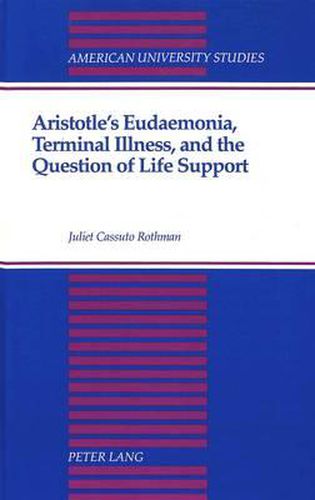Readings Newsletter
Become a Readings Member to make your shopping experience even easier.
Sign in or sign up for free!
You’re not far away from qualifying for FREE standard shipping within Australia
You’ve qualified for FREE standard shipping within Australia
The cart is loading…






Aristotle’s concept of eudaemonia, variously translated as happiness or well-being, describes the qualities of human life that make it meaningful and fulfilling. This concept is shown to provide a structure for the examination, consideration, and understanding of an individual life. Questions about life-support are addressed regularly in terminal illness. Such decisions, of vital importance, need to be considered with care and concern. Aristotle’s concept is developed into a process that provides a useful structure to guide such consideration and decision-making. Three case studies are presented to demonstrate the potential applicability of eudaemonia to life support decisions.
$9.00 standard shipping within Australia
FREE standard shipping within Australia for orders over $100.00
Express & International shipping calculated at checkout
Aristotle’s concept of eudaemonia, variously translated as happiness or well-being, describes the qualities of human life that make it meaningful and fulfilling. This concept is shown to provide a structure for the examination, consideration, and understanding of an individual life. Questions about life-support are addressed regularly in terminal illness. Such decisions, of vital importance, need to be considered with care and concern. Aristotle’s concept is developed into a process that provides a useful structure to guide such consideration and decision-making. Three case studies are presented to demonstrate the potential applicability of eudaemonia to life support decisions.